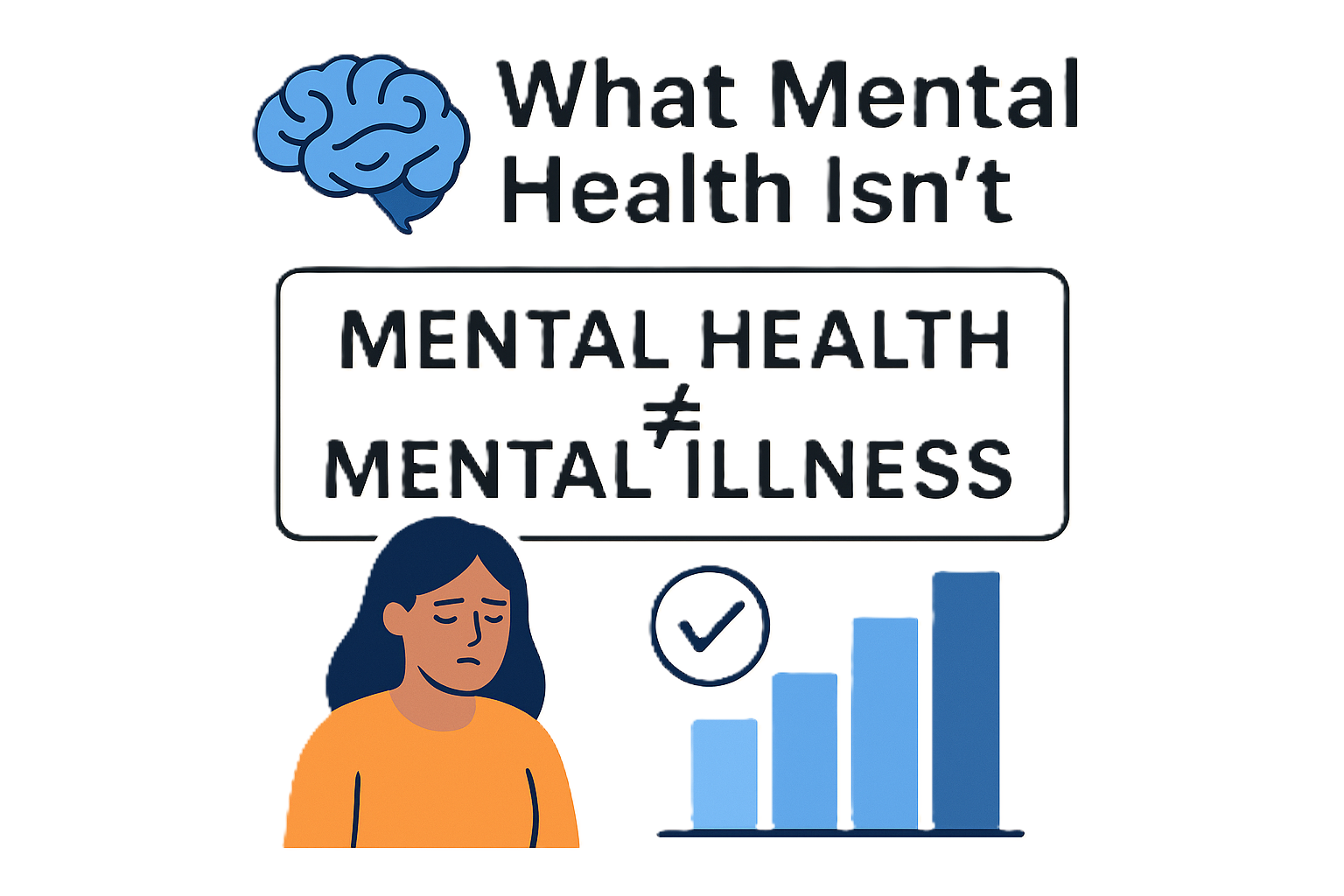

About This Post
This extract is part of my ongoing work on the book currently entitled “Mental Health – Beyond the Stigma”, featuring Chapter 1: Understanding Mental Health: From Perception to Reality. Please bear in mind that these words are still in draft form and may evolve as the manuscript develops.
Thank you to everyone who first joined the conversation on LinkedIn – your messages and comments helped launch this project, and I’m delighted to have ticked “launch a website” off my bucket list. I hope this and future extracts will excite and inspire you.
Thank you,
Mark Tonks
For many, the term “mental health” immediately conjures images of crisis, illness, and breakdown. We associate it with therapy rooms, diagnoses, and medications. The media, too often, portrays mental health only in its most extreme forms: tragedy, dysfunction, or sensationalised celebrity struggles. And yet, this limited view couldn’t be further from the full truth.
Mental health is not the same as mental illness.
That distinction is not just semantic – it’s transformative. Every person, regardless of background, ability, age, or life experience, has mental health. Just as we all have physical health — ranging from moments of vitality to periods of illness. Our mental health exists on a spectrum. It includes our emotional wellbeing, our ability to handle stress, our relationships, our sense of identity, and our day-to-day functioning.
To say that someone “has mental health issues” should not immediately imply disorder. It could simply mean they are tired, disconnected, overwhelmed, or grieving. These are natural human responses to life’s challenges. But due to longstanding cultural misunderstandings, we’ve internalised the idea that mental health is only worth discussing when something is broken. The silence that follows that belief — in workplaces, families, and schools — is what fuels stigma the most.
Here’s the reality:
Struggling with your mental health doesn’t mean you are weak.
It means you are human. Being well doesn’t mean being happy all the time. It means being able to feel, to think, to relate, and to bounce back. Mental health is not about perfection or performance — it’s about presence, resilience, and responsiveness.
“Mental health… is not a destination, but a process. It’s about how you drive, not where you’re going.” — Noam Shpancer, PhD, Clinical Psychologist and Author
This quote reminds us that mental health is a daily experience, not a one-time assessment. It shifts our focus from a label to a lived reality. If we only acknowledge mental health when it collapses, we miss the opportunity to nurture it in the everyday.
According to the UK mental health charity Mind, 1 in 4 people will experience a mental health problem each year. But the wider truth is this: 4 in 4 people are affected — directly or indirectly — through relationships, workplaces, trauma, grief, parenting, caregiving, or community stress.
📚 Source: Mind UK – mind.org.uk
It’s also important to highlight that the language we use matters deeply. Saying someone “is bipolar” or “is depressed” can unintentionally reduce them to a diagnosis. In reality, they are a whole person living with a condition — not defined by it. These shifts in language may seem small, but they shape how we see others and how we support them. Words are not just descriptors — they are cultural tools that either open doors or shut them…
The truth is:
mental health affects us all — whether we recognise it or not.
And if we begin by redefining what mental health isn’t, we start clearing away the fear, judgement, and silence that prevent so many from speaking up…

Microsoft Solution Architect, Senior Project Manager, and Mental Health Advocate